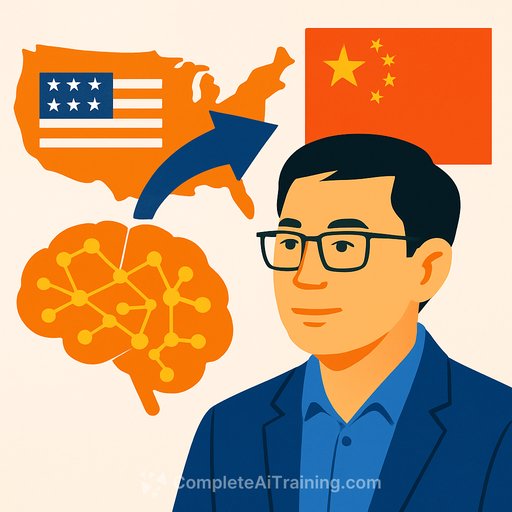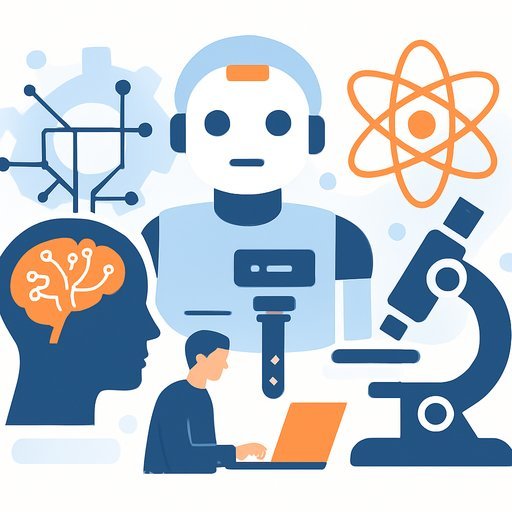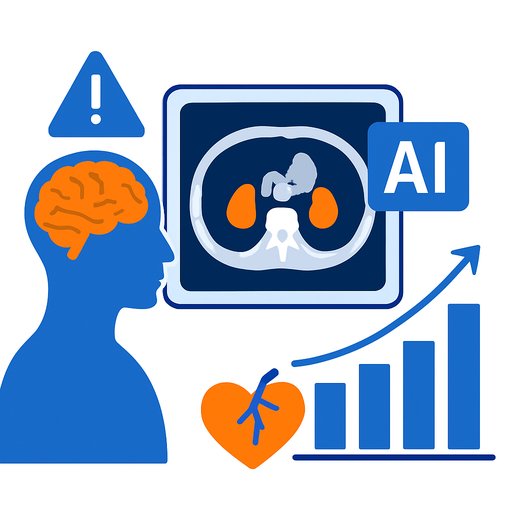"I have to do it": Why a top AI scientist left the US for China
By six, Song-Chun Zhu had seen loss up close. Growing up in a rural supply shop during the Cultural Revolution, he listened to stories of hardship and decided his life had to count for more than a name and two dates in a genealogy book. That urgency never left.
Today, at 56, Zhu is a leading figure in AI. After three decades in the US-Harvard PhD, UCLA tenure, major awards, and high-profile federal grants-he shocked colleagues in 2020 by moving back to Beijing to build an institute for general AI with unusual resources and freedom.
From a village shop to a bet on intelligence
At USTC in the 1980s, Zhu encountered David Marr's "Vision," a blueprint for turning perception into math. It convinced him that intelligence could be modeled with rigor, not trickery. His aim wasn't a flashy demo-it was a theory of mind precise enough to compute.
He arrived at Harvard in 1992 with a full fellowship and an audacious plan. Under mathematician David Mumford, he helped pioneer statistical approaches to vision-Bayesian inference and Markov random fields-arguing that learning from data beats hand-coded rules. That thread runs through today's systems, even as the math has shifted.
David Marr's Vision (MIT Press)
Bayesian analysis (Britannica)
The split: big data, small task vs small data, big task
Through the late 1990s and early 2000s, Zhu's "Harvard-Brown school" helped set the agenda in computer vision. Then deep learning surged. US labs and companies poured billions into scaling neural networks, betting that large language models would carry us to AGI.
Zhu disagrees. He argues that real intelligence looks like this: minimal input, large goals, and reliable reasoning in novel situations. Call it "small data, big task." That demands causal understanding, social and physical intuition, and resourcefulness-not just pattern completion.
With recent slowdowns and underwhelming releases, his critique has grown louder. He doesn't believe LLMs alone will reach AGI. His team in Beijing is pushing alternate paths: causal models, compositional reasoning, and agents that act and learn with limited data.
Why he left-and what it signals
By the late 2010s, Zhu felt out of step with the US mainstream. He wasn't chasing ad clicks or incremental benchmarks. He wanted a testbed to build a full system-architecture, learning, perception, action-end to end. China offered the resources, land, and institutional backing to try.
He accepted. In Beijing, he now advises universities, leads a state-backed institute, and has a voice in policy. He has urged China to treat AI as strategically as nuclear programs-long-horizon, mission-level focus. As he told a friend about the move: "If I want to build the system in my head, this is the chance. I have to do it."
The backdrop: science under pressure
For decades, the US drew top minds with money, openness, and world-class labs. That magnet is weaker. Funding uncertainty, political fights with universities, and visa scrutiny for Chinese scholars have pushed some to look elsewhere. Meanwhile, both the US and China are laying out national AI blueprints and building mega-hubs.
For researchers, the message is clear: where you work now carries policy, security, and career implications. The field is global; the rules are not. You need a strategy.
What scientists and research leaders should do next
- Audit your thesis: Are you betting on scale alone, or on better reasoning with less data? Decide, then align your lab's work, hiring, and compute around it.
- Prioritize causal and compositional tests: Build benchmarks that reward generalization under sparse data, out-of-distribution shifts, and test-time adaptation.
- Explore hybrids: Combine neural function approximators with programmatic structure, simulators, and tool-use. Measure planning, not just next-token prediction.
- Invest in sample efficiency: Study active learning, model-based RL, and world models with grounded perception. Keep your data budget honest.
- Embed social and physical intuition: Use interactive environments and embodied setups to force models to act, fail, and update beliefs.
- Plan for geopolitics: Track export controls, data localization, and dual-use risks. Build compliance into collaboration and compute procurement from day one.
The enduring lesson
Zhu's move isn't just about borders. It's about intellectual conviction backed by resources. If your core idea needs a different lab, funder, or country to thrive, face that decision early.
Science advances when we pick hard problems and refuse cheap wins. That requires taste, patience, and the right stage to build on.
Upskill with intent
If you lead teams or plan your next project, align skills with your thesis. For practitioner-friendly pathways by job role, see our overview at Complete AI Training.
Your membership also unlocks:






